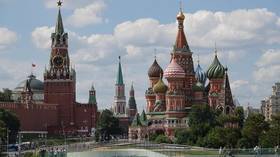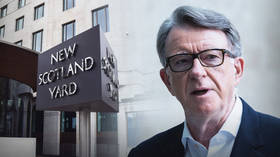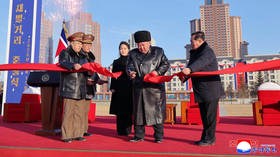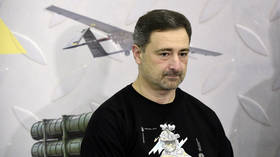Zelensky issues demand to Trump
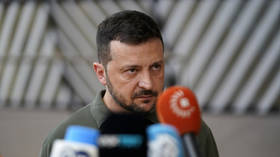
Former US President Donald Trump should set out his plan to resolve the Ukraine conflict, which he claims would take just 24 hours if he’s returned to the White House in November, Vladimir Zelensky has said.
Following the launch of Russia’s military campaign against Kiev in 2022, Trump has repeatedly said the conflict would not have escalated if he were still president, and has vowed to resolve the crisis in a single day if he is elected once again.
During last week’s debate with President Joe Biden, Trump reiterated this promise, stating that he could quickly resolve the conflict – even before he officially assumes office. However, he has yet to specify how he would end the fighting.
In an interview with Bloomberg published on Wednesday, Zelensky demanded that Trump reveal the details of his plan so that Kiev can know what to prepare for in November.
“I would like to know what it would mean to finish a war fast,” he said, insisting that “if Trump knows how to end this war, he should tell us today, because if there are risks to Ukraine’s independence, and there are risks that we will lose our statehood, we want to be prepared for this.”
Zelensky further explained that Kiev needed to understand whether it would have “the powerful support of the US” in November in the event of Trump’s re-election or if it will be “all alone.”
According to Bloomberg’s Annmarie Hordern, who conducted the interview, Zelensky indicated that his team was ready to meet with Trump to go over his proposals.
Last month, Reuters reported that Trump advisers had drawn up a roadmap for peace in Ukraine that would include an initial ceasefire based on the battle lines during peace negotiations, while Kiev would not have to formally cede any disputed territories to Moscow. As part of the plan, Russia would also reportedly receive a promise that Ukraine’s NATO accession talks would be put on hold.
While Moscow did not dismiss the plan outright, Kremlin spokesman Dmitry Peskov noted that “the value of any plan lies in the nuances and in taking into account the real state of affairs on the ground.”
